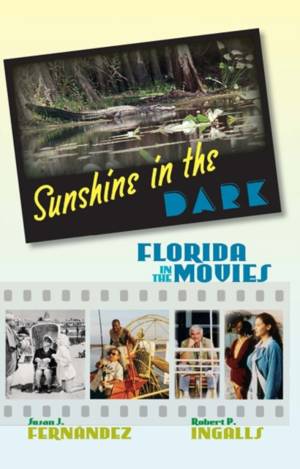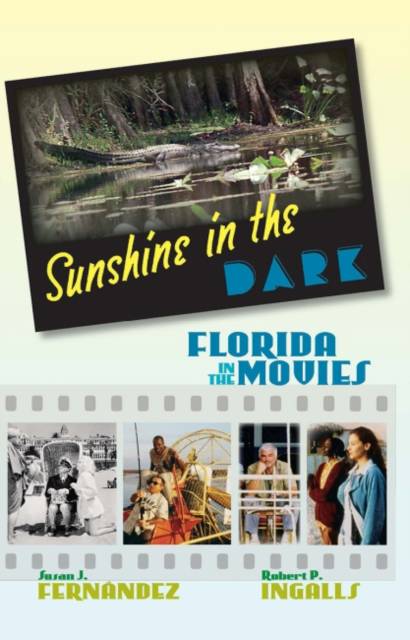
- Afhalen na 1 uur in een winkel met voorraad
- Gratis thuislevering in België vanaf € 30
- Ruim aanbod met 7 miljoen producten
- Afhalen na 1 uur in een winkel met voorraad
- Gratis thuislevering in België vanaf € 30
- Ruim aanbod met 7 miljoen producten
Zoeken
€ 37,95
+ 75 punten
Uitvoering
Omschrijving
Florida has been the location and subject of hundreds of feature films, from Cocoanuts (1929) to Monster (2004). Portraying the state and its people from the silent era to the present, these films have explored the multitude of Florida images and cliches that have captured the public's imagination--a nature lover's paradise, a wildlife refuge, a tourist destination, home to the "cracker," and a haven for the retired, the rich, the immigrant, and the criminal. Sunshine in the Dark is the first complete study of how the movie industry has immortalized Florida's extraordinary scenery, characters, and history on celluloid. Historians Fernández and Ingalls have identified more than 300 films about Florida--many of them shot on location in the state--to analyze how filmmakers from the Marx Brothers and John Huston to Oliver Stone and Francis Ford Coppola have portrayed the state and its people. Prior to the 1960s, cinematic trips to Florida usually brought happy endings in movies like Moon Over Miami (1942), but since the 1970s, films like Scarface (1982) have emphasized the state's menacing aspects. In the authors' analysis of the films, which examines location settings, plotlines, and characters, they find a bevy of Florida stereotypes among the leading characters--from the struggling crackers in The Yearling (1946) to the drug-addicted con man in Adaptation (2002). Featuring more than 100 still photographs from movies, as well as filmographies by year and genre, the book is an encyclopedic resource for movie fans and anyone interested in Florida popular culture.
Specificaties
Betrokkenen
- Auteur(s):
- Uitgeverij:
Inhoud
- Aantal bladzijden:
- 320
- Taal:
- Engels
Eigenschappen
- Productcode (EAN):
- 9780813068749
- Verschijningsdatum:
- 31/05/2022
- Uitvoering:
- Paperback
- Formaat:
- Trade paperback (VS)
- Afmetingen:
- 154 mm x 234 mm
- Gewicht:
- 544 g

Alleen bij Standaard Boekhandel
+ 75 punten op je klantenkaart van Standaard Boekhandel
Beoordelingen
We publiceren alleen reviews die voldoen aan de voorwaarden voor reviews. Bekijk onze voorwaarden voor reviews.











